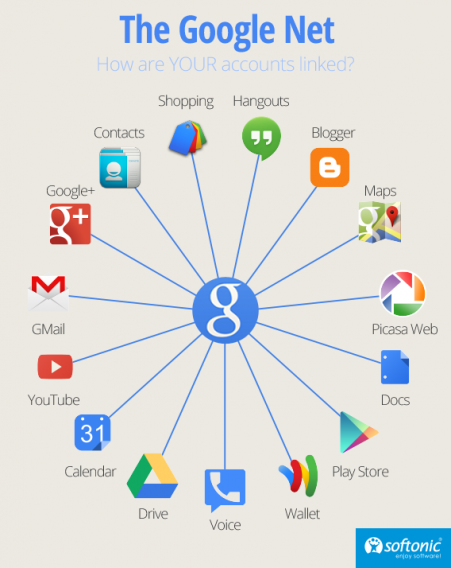In early October, Facebook, Apple, Microsoft, Google and several other major internet companies went to court. In an unusual collaboration between companies that are typically direct competitors, the giants filed a lawsuit against the U.S. government. The lawsuit in itself was pretty unusual, but that word appears to apply in general when we look at the events of 2013. After this year, online privacy will never be the same. So what’s happening right now with private data? And why is suddenly of such importance to everyone?
Edward Snowden, a former CIA employee who was hired by the National Security Agency, leaked 200,000 secret documents about the spying behavior of the U.S. government. It’s safe to say the shock was felt around the world, but people quickly lost interest. Online privacy is something for criminals and people who have something to hide. Right?

Online information: securely locked with a password
The effects of collecting personal information on this scale were immediately obvious with the Snowdon releases. Any person who has information available online should assume that, besides the software developers, additional third parties will have access to this data. In Google’s case this could have huge implications: with a Google Account you connect to Gmail, Google Maps, Google+, YouTube, mobile data through Android and the Google Play Store, and even financial information from Google Wallet.

This means Google know exactly who you speak to, what you like, where you go, when you go there, which videos you watch, and could even be aware of your financial situation. This obviously helps you as a customer, because you don’t always have to enter the same information, but what if this information, voluntarily or by illegal means, ended up in the hands of government? Big Brother is not only watching you, he knows where you’re going and exactly what you’ll be doing.
Is transparency the answer?
The Surveillance Transparency Act 2013 states that internet users should be able to find out what information is collected about them. Companies like Google support this proposed legislation, mainly because it helps their image. Google states that the current practices of economic growth hamper the company. In addition, the American tycoon reports that users’ freedom is violated. However, a lawyer for the U.S. government argues that the desired transparency would have a greater impact on the online privacy of residents than current data collection by institutions such as the NSA. During the FTC conference, Google’s Vint Cerf talked about the development of online privacy. The internet evangelist suggested that privacy is an anomaly. He likened the internet to growing up in a community, someone’s always watching you, someone always wants to know more, and someone’s always talking about you. According to Cerf, privacy only exists online, technology doesn’t stop personal privacy, technology is the sole reason that privacy exists. According to Cerf it will be difficult to maintain online (in)visibility in a time of technological growth.
Online Privacy in 2014
2013’s developments are no immediate cause for panic; governments are generally not interested in the conversations of their (or others’) citizens. However, the fact that more and more information that many consider private is visible to others is a worrying thought. Informed users are increasingly switching to anonymous services like Dark Mail and the browser DuckDuckGo. Yahoo, after an illegal attack on its data centers, promised users increased encryption of data in 2014. More and more people, though, will leave the management of their information links to companies like Facebook, Google and Microsoft. Softonic will keep you informed of developments surrounding the Surveillance Transparency Act 2013 and the NSA. Follow us on Facebook and Twitter for the latest information.
Read more about the NSA here :
- Yahoo! reveals FISA data request numbers to combat PRISM backlash
- Apple, Facebook, Google and others back government transparency bill
- New report reveals Microsoft worked with NSA to provide access to Outlook.com, SkyDrive, Skype
- U.S. government may have access to Internet companies’ servers
- PRISM: Leaked NSA slides explains real-time monitoring
- Microsoft publishes data on law enforcement requests

